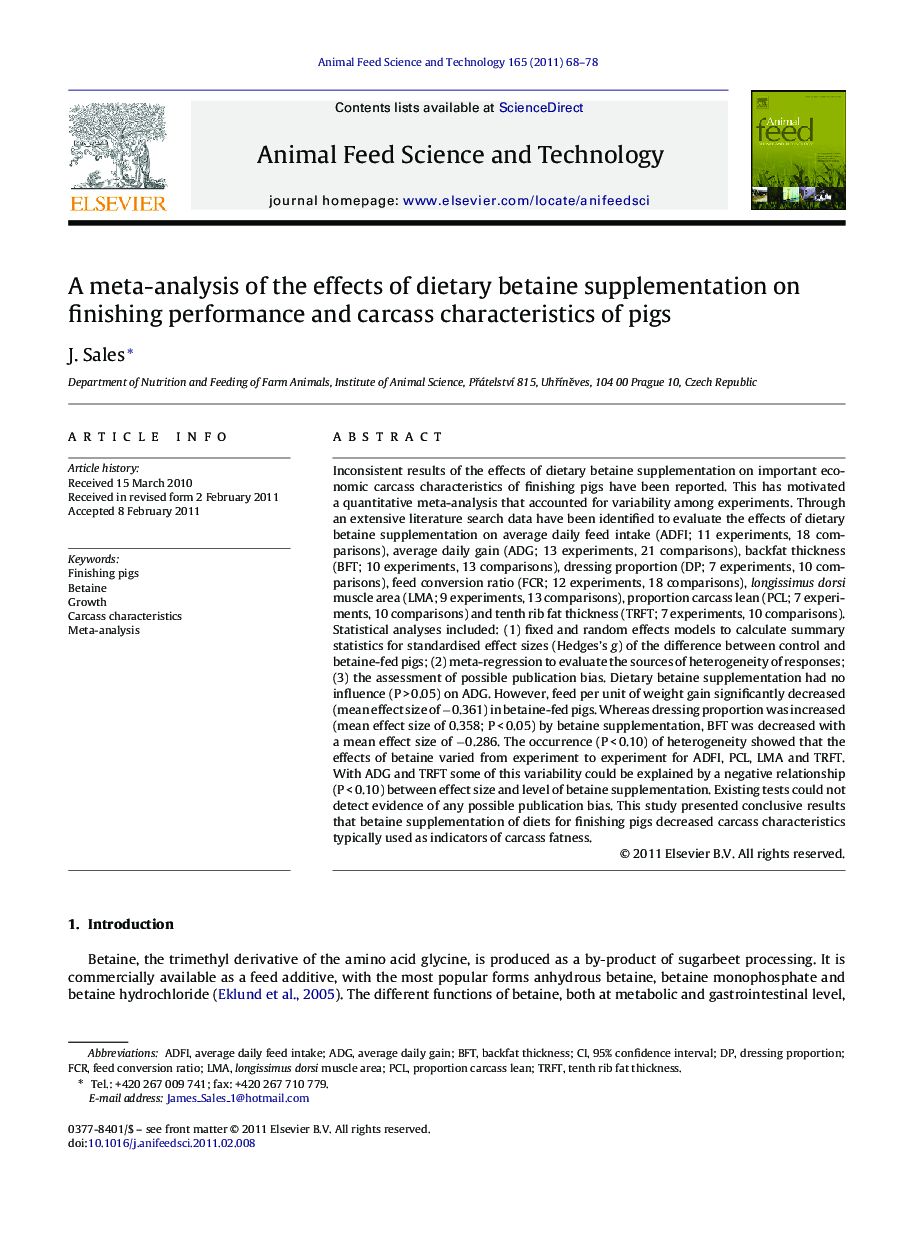| Article ID | Journal | Published Year | Pages | File Type |
|---|---|---|---|---|
| 8492738 | Animal Feed Science and Technology | 2011 | 11 Pages |
Abstract
Inconsistent results of the effects of dietary betaine supplementation on important economic carcass characteristics of finishing pigs have been reported. This has motivated a quantitative meta-analysis that accounted for variability among experiments. Through an extensive literature search data have been identified to evaluate the effects of dietary betaine supplementation on average daily feed intake (ADFI; 11 experiments, 18 comparisons), average daily gain (ADG; 13 experiments, 21 comparisons), backfat thickness (BFT; 10 experiments, 13 comparisons), dressing proportion (DP; 7 experiments, 10 comparisons), feed conversion ratio (FCR; 12 experiments, 18 comparisons), longissimus dorsi muscle area (LMA; 9 experiments, 13 comparisons), proportion carcass lean (PCL; 7 experiments, 10 comparisons) and tenth rib fat thickness (TRFT; 7 experiments, 10 comparisons). Statistical analyses included: (1) fixed and random effects models to calculate summary statistics for standardised effect sizes (Hedges's g) of the difference between control and betaine-fed pigs; (2) meta-regression to evaluate the sources of heterogeneity of responses; (3) the assessment of possible publication bias. Dietary betaine supplementation had no influence (PÂ >Â 0.05) on ADG. However, feed per unit of weight gain significantly decreased (mean effect size of â0.361) in betaine-fed pigs. Whereas dressing proportion was increased (mean effect size of 0.358; PÂ <Â 0.05) by betaine supplementation, BFT was decreased with a mean effect size of â0.286. The occurrence (PÂ <Â 0.10) of heterogeneity showed that the effects of betaine varied from experiment to experiment for ADFI, PCL, LMA and TRFT. With ADG and TRFT some of this variability could be explained by a negative relationship (PÂ <Â 0.10) between effect size and level of betaine supplementation. Existing tests could not detect evidence of any possible publication bias. This study presented conclusive results that betaine supplementation of diets for finishing pigs decreased carcass characteristics typically used as indicators of carcass fatness.
Keywords
Related Topics
Life Sciences
Agricultural and Biological Sciences
Animal Science and Zoology
Authors
J. Sales,
